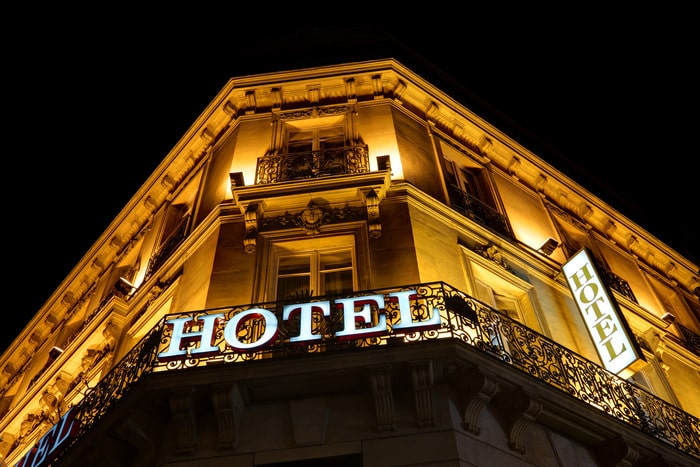
- August 7, 2023
- |security guard company
- | 0
Access Prevention in Hotel Guest Rooms –
In the realm of hospitality, the sanctity of guest rooms is paramount. As a distinguished hotel security company, XPressGuards is committed to shedding light on the sophisticated security measures that hotels implement to safeguard guest privacy and prevent unauthorized access to guest rooms. This article explores the intricate strategies and advanced technologies that create a shield of protection, allowing guests to enjoy their stay with peace of mind.
1. Keycard and Electronic Lock Systems
Keycard and electronic lock systems are the cornerstone of preventing unauthorized access to guest rooms. Modern hotels have replaced traditional keys with electronic keycards that offer enhanced security. These keycards contain encoded data that grants access only to the specific room assigned to the guest. Electronic locks ensure that only authorized individuals can enter the room, significantly reducing the risk of unauthorized access.
2. Personal Identification Requirements
Hotels prioritize guest safety by implementing personal identification requirements during check-in. Guests are required to present a valid government-issued photo ID and the credit card used for booking. These measures help verify the guest’s identity and ensure that the individual checking in matches the reservation details. This extra layer of verification minimizes the likelihood of unauthorized individuals gaining access to guest rooms.
3. Limited Elevator Access
To prevent unauthorized access to guest floors, many hotels employ keycard-operated elevators. This ensures that only guests with valid room keycards can access the floors where guest rooms are located. Restricting elevator access adds an additional layer of security, preventing non-guests from wandering the hallways and entering guest areas.
4. Secure Door Hardware
The physical hardware of guest room doors is designed with security in mind. Reinforced door frames, heavy-duty locks, and peepholes provide additional protection against forced entry. Deadbolts and security chains further enhance security, allowing guests to secure their rooms from inside. Regular maintenance and inspection of door hardware ensure that they remain effective.
5. Privacy Indicators
Privacy indicators are small, yet effective, tools that contribute to guest safety and peace of mind. These indicators, often placed on the inside of the guest room door, visually signal whether the room is occupied or unoccupied. Guests can use these indicators to confirm that nobody is attempting to enter their room while they are inside, thereby preventing unauthorized access.
6. Digital Room Management Systems
Digital room management systems enable hotels to monitor and control room access remotely. These systems allow staff to assign, modify, or revoke access privileges in real time. In case of a lost keycard or a need for emergency access, staff can swiftly address the situation without compromising security.
7. Security Staff and Surveillance
Well-trained security personnel play a critical role in deterring unauthorized access to guest rooms. Security staff patrol hotel hallways and public areas, ensuring that only guests and authorized personnel are present. Surveillance cameras placed near elevators, stairwells, and hallways provide continuous monitoring, capturing any suspicious activity and aiding in investigations if necessary.
8. Guest Education
Hotels prioritize guest safety by educating guests about security measures and best practices during their stay. Informational materials in guest rooms can explain how keycard systems work, offer guidance on using in-room safes, and provide tips for safeguarding valuables. Educated guests are more likely to be proactive about their own security.
9. Housekeeping Protocols
Housekeeping staff are trained to respect guest privacy and security. Hotels implement strict protocols to ensure that housekeeping only enters guest rooms when necessary and in a non-intrusive manner. Providing guests with the option to decline daily housekeeping services further reinforces their control over room access.
10. Regular Security Audits
Hotels conduct regular security audits to evaluate the effectiveness of their access prevention measures. Independent security experts or consultants assess the hotel’s keycard systems, door hardware, access logs, and overall security protocols. These audits help identify vulnerabilities and suggest improvements to ensure the highest level of guest room security.
11. Rapid Response and Communication
In case of emergencies or reports of unauthorized access, hotels have established protocols for rapid response and communication. Front desk staff, security personnel, and management collaborate to address incidents swiftly. Open lines of communication with local law enforcement ensure that authorities can respond promptly if the situation warrants it.
12. Continuous Improvement
Ensuring unauthorized access prevention is an ongoing effort. Hotels regularly review and enhance their security measures based on industry best practices, technological advancements, and emerging threats. This commitment to continuous improvement ensures that the security of guest rooms remains up to date and effective.
Preventing unauthorized access to guest rooms is a cornerstone of hospitality security. Hotels deploy a multifaceted approach, encompassing advanced technologies, diligent staff training, robust access control systems, and regular security assessments.
By nurturing an environment of safety and privacy, hotels offer guests a tranquil haven where they can relax and enjoy their stay without concerns of unauthorized intrusion. As a respected hotel security company, XPressGuards is dedicated to partnering with hotels to ensure the highest standards of guest room security, contributing to a truly exceptional guest experience. Contact us to learn more.


